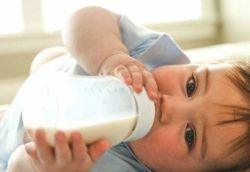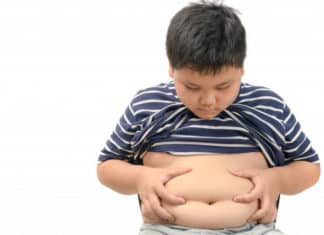Food related problems are very common in the infants. Be it avoiding the food, spitting it out or refusing to eat sometimes, are the most common troubles. Infant’s feeding problems are usually normal and do not indicate that the baby is sick, however, with neurodevelopmental disabilities that are caused due to some kind of feeding problems is alarming.
Are you also experiencing newborn feeding problems? There are structured methods to assess and help overcome the feeling difficulties in newborn or kids under 3 years of age. Simple and practical suggestions which are described below would help you to solve most of your feeding problems. The feeding problems are so common that up to 35% of infants face this issue.
 What is feeding issue? In common terms, it is the inability of the refusal to eat certain foods. The newborn feeding problems can lead to significant nutritional imbalance, develop psychology sequelae. Hence, the early recognition and management of such problems are important. There must be a diagnostic and therapeutic approach for baby feeding problems.
What is feeding issue? In common terms, it is the inability of the refusal to eat certain foods. The newborn feeding problems can lead to significant nutritional imbalance, develop psychology sequelae. Hence, the early recognition and management of such problems are important. There must be a diagnostic and therapeutic approach for baby feeding problems.
Symptoms of Infant feeding problems often have multifactorial causes and some behavioral component associated. Feeding issues are classified under the structural abnormalities, behavioral disorder, and neurodevelopmental disabilities and also having overlap between the categories. There has to be a proper approach that would need an evaluation of the diet and assessment of the understanding and interaction between the child and the parent. Increasing the caloric intake or treating it medically or surgically and including some counseling about general nutrition can help to alleviate the baby feeding disorders. In some more complicated cases, one must refer to the multidisciplinary team and consult the specialist.
Poor feeding can also be caused by a variety of incidents. No matter what the cause is, undernutrition is also one of the top concerns. WHO World Health Organization estimate about 45% of child death due to undernutrition. This is a critical point in your kid’s life, as the missing nutrients can lead to cognitive problems as well as physical issues.
 What are the Causes of Poor feeding in a Newborn?
What are the Causes of Poor feeding in a Newborn?
One of the most common causes of poor feeding in the baby is a premature birth. Premature babies are typically weak and not yet developed owing to which they are also poor feeders. Their skills to suck and swallow the milk are not completely developed. Even though, the fee that usually increases as the baby grows, they still face some feeding issues. Other causes could have congenital conditions such as jaundice, herpes and other viral gastroenteritis infections. These conditions when improved are treated helps in improving the overall feeding.
Medical causes include:
- Birth injuries which are traumatic, leading to neurological disorders like cerebral palsy
- Cleft lip or cleft palate or both
- Autism
- Head and neck abnormalities
- Premature birth
- Low birth weight
- Respiratory or breathing problems
- Heart disease
- Gastrointestinal disorders
- Medications that shrinks the appetite
Infant feeding problems may include issues with gripping food, holding liquids and foods in the mouth, sucking, and munching. For example, babies who are incapable to pick up food and put it to their mouths or are not able to close their mouth and seal it with lips to keep food and liquid from falling out might potentially have a feeding problem or disorder.
Medical term dysphagia which is for the swallowing disorders could occur at different stages at the time of the infant’s swallowing process, and might as well have:

- Oral Stage: The oral stage is all about sucking, some chewing and pushing the foods and/or liquids go through the throat down.
- Pharyngeal Stage: The pharyngeal stage is when the baby starts to swallow and move food down the throat slowly, yet shuts off the throat to prevent it from entering the airway, preventing the choking.
- Esophageal Stage: This esophageal stage consists of the moment of relaxing and tightening the openings to the esophagus and directing the food into the stomach.
Symptoms of Serious Condition:
Poor feeding can also tend to be very serious such as Beckwith-Weidemann syndrome. This syndrome is an overgrowth syndrome that causes the kids to particularly grow large at a very fast pace. It is estimated that 1 in every 13700 newborns worldwide is affected because of this condition. There are many other conditions which are serious as below:
- Congenital hypothyroidism: This is a severe case when the thyroid fails to develop or properly function.
- Hypoplastic left heart: A rare condition that occurs when the left side of the heart fails to properly develop and is not able to pump blood to the body.
- Infant botulism: This is a condition that can occur when the bacteria Clostridium botulinum gets injected into an infant, producing a dangerous toxin in the body affecting eating and breathing.
- Down syndrome is also one of the severe conditions.
Symptoms of a Lesser Severe Condition:
Although, poor feeding in other cases are not related to congenital conditions, however, the temporary illness makes the feeling uncomfortable and even painful in some cases for the baby. The common sickness that gets in a feeding way are:
- Diarrhea
- Cough and cold
- Teething
- Ear infection
It is always worthy to check with a pediatrician when in doubt. Do not assume it to be a minor illness as there could be some serious conditions underlying.
 What are the Emergency Cases?
What are the Emergency Cases?
Feeding issues or disorders are serious matters. When the other symptoms are accompanied by the below, the kid might require emergency care. The best is to seek immediate medical attention.
- The baby has not fed in more than 4 hours
- A fever over a hundred degrees Fahrenheit.
- vomiting after feeding
- Blood vomit
- Blood in the stool
- Wheezing
- Is not responsive to touch
- Has a chronic and worsening cough
- Is fussy and crying continuously
Treatments for Poor feeding Problems in Babies:
Infection usually causes poor feeding in an infant and stops when the infection is treated. The basics treatment could be the change the feeding schedule to have smaller and frequent meals. You can also switch the feeding method from breastfeeding to bottled formula feed. If the suspicion is due to milk-based intolerance, consult the doctor immediately to find a formula that could suit your baby.
Other treatment options for babies with feeding issues:
- Medications
- Customizing the feeding therapy
- Changes in the nutritional intake
- Promoting of new foods and texture acceptance
- Taking care of the food temperature and texture and changing it
- Postural or changes in positioning
- Behavior management techniques
- Exercises for mouth to strengthen the mouth muscles
- Tongue movement and exercises like chewing
- Help with improving the sucking capabilities
- Altering the thickness of the liquid and viscosity for the ease of swallowing
Home Remedies for infant’s Feeding Problems:
While there are many serious cases of poor feeding, it always requires Medical help. Other cases can be solved at home using way home remedies suggested below:
- Try to avoid exercising right before feeding the baby as this can lead up to the building of lactic acid in the milk.
- You must not try new food that you usually do not eat as this can show up in the mouth and baby good turn off the liking.
- If you are undergoing any medications that enter the breast milk.
- If you are highly stressed, it changes the taste of the milk.
- Any skin product that you apply to your breasts.








































